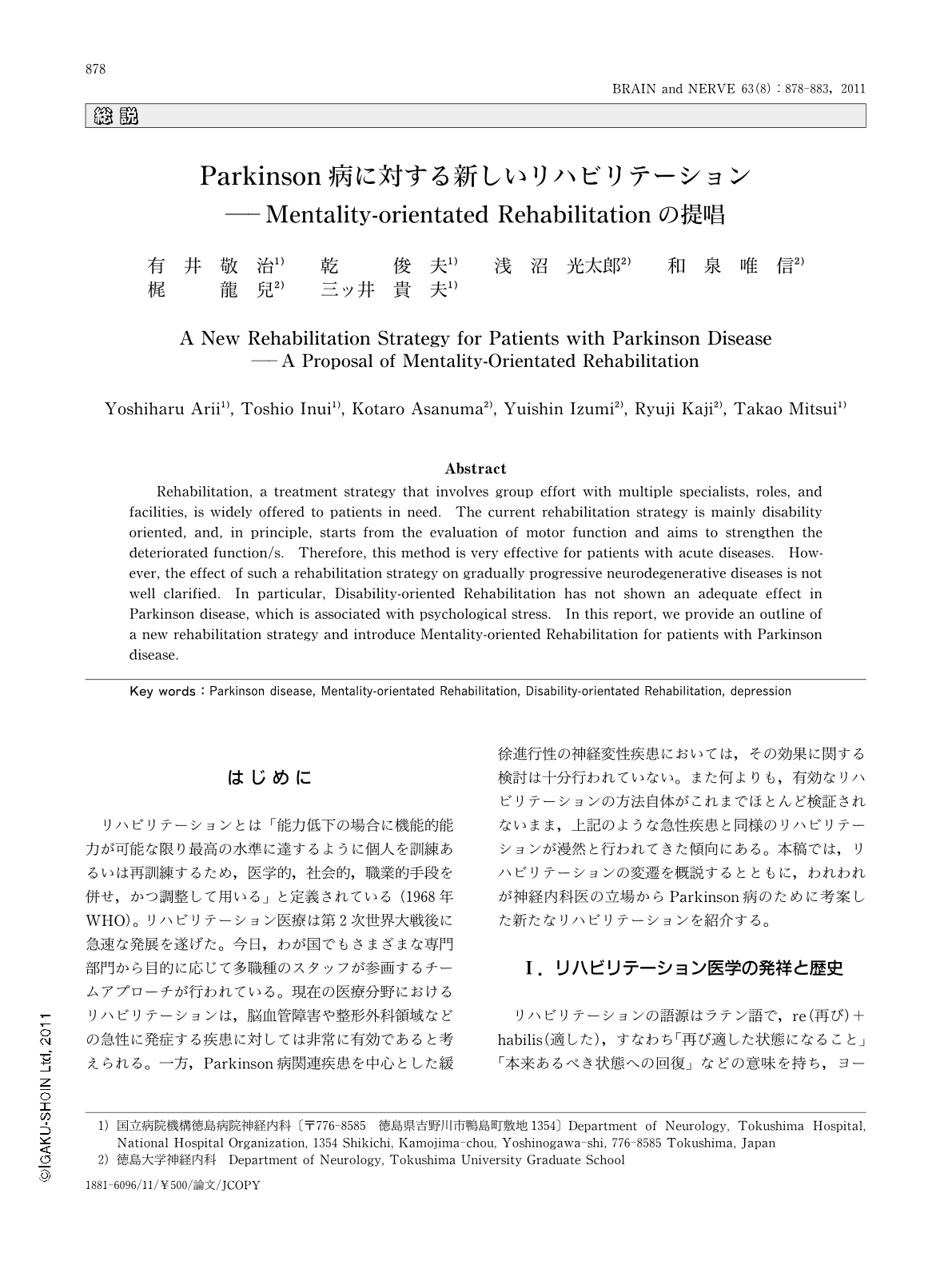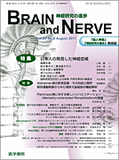Japanese
English
- 有料閲覧
- Abstract 文献概要
- 1ページ目 Look Inside
- 参考文献 Reference
- サイト内被引用 Cited by
はじめに
リハビリテーションとは「能力低下の場合に機能的能力が可能な限り最高の水準に達するように個人を訓練あるいは再訓練するため,医学的,社会的,職業的手段を併せ,かつ調整して用いる」と定義されている(1968年 WHO)。リハビリテーション医療は第2次世界大戦後に急速な発展を遂げた。今日,わが国でもさまざまな専門部門から目的に応じて多職種のスタッフが参画するチームアプローチが行われている。現在の医療分野におけるリハビリテーションは,脳血管障害や整形外科領域などの急性に発症する疾患に対しては非常に有効であると考えられる。一方,Parkinson病関連疾患を中心とした緩徐進行性の神経変性疾患においては,その効果に関する検討は十分行われていない。また何よりも,有効なリハビリテーションの方法自体がこれまでほとんど検証されないまま,上記のような急性疾患と同様のリハビリテーションが漫然と行われてきた傾向にある。本稿では,リハビリテーションの変遷を概説するとともに,われわれが神経内科医の立場からParkinson病のために考案した新たなリハビリテーションを紹介する。
Abstract
Rehabilitation,a treatment strategy that involves group effort with multiple specialists,roles,and facilities,is widely offered to patients in need. The current rehabilitation strategy is mainly disability oriented,and,in principle,starts from the evaluation of motor function and aims to strengthen the deteriorated function/s. Therefore,this method is very effective for patients with acute diseases. However,the effect of such a rehabilitation strategy on gradually progressive neurodegenerative diseases is not well clarified. In particular,Disability-oriented Rehabilitation has not shown an adequate effect in Parkinson disease,which is associated with psychological stress. In this report,we provide an outline of a new rehabilitation strategy and introduce Mentality-oriented Rehabilitation for patients with Parkinson disease.

Copyright © 2011, Igaku-Shoin Ltd. All rights reserved.


